Since the Leaving Neverland programme in 2019, the allegations against Michael Jackson have been treated as an open-and-shut case by much of the media, with the view that – because they’ve watched a programme on television, their mind is made up.
As the sequel that nobody asked for emerges to again make bank on Jackson’s name and legacy, critical questions surrounding the selective approach to the programme’s release and existence remain unanswered.
Why do mainstream journalists continue to sidestep inconsistencies in the accusations? Why is the Jackson Estate portrayed as an all-powerful force while the billion-dollar media entities backing Leaving Neverland escape scrutiny or challenges over accuracy and bias?
It seems as though there is a sense of fear among journalists to dare challenge the media narrative of Jackson, using sound bites, historical inaccuracies and Leaving Neverland as their go-to sources instead of court transcripts, first-hand testimony and verifiable facts.
Who are they afraid of? Is the world outside the echo chamber really that scary? It’s time to ask the tough questions that too many in the press seem unwilling, or afraid, to ask themselves when they approach the subject of the Michael Jackson allegations.
1. If the ‘Train Station’ story is verifiably false, what else is?
It’s well known by now that Safechuck’s claims about being abused by Michael Jackson in the train station at Neverland between 1988 and 1992 are verifiably false. For those catching up, here’s what you need to know:
- Safechuck states in his legal complaint and in the film that the alleged abuse stopped in 1992.
- Safechuck claims he was abused in the famous Neverland Train Station.
This has been proved false owing to the following points:
- Aerial photos of Neverland from August 1993 show the station did not exist at the time of photography
- Construction permits showing approval for the building are date stamped September 1993
- The first photos of construction from the Associated Press are dated December 1993
- The station did not open until 1994.
When considering all the documents from both Safechuck and the station’s construction, it’s not possible that Safechuck was abused in this building, ending 1992 when it didn’t exist. We’ve since watched the director and several journalists try to excuse this as a date discrepancy, or even a location discrepancy, with one trying to suggest that Safechuck didn’t actually mean the station he said he did even though he showed a picture of it.
Some, like Oprah, will argue that when looking at accusations “timelines do not matter”. Thankfully Oprah doesn’t work in a court room. Because timeline’s absolutely matter. It can be the fundamental difference in a verdict. If you’re accused of being somewhere at the time of a crime, but can prove you were somewhere else, then it absolutely matters.
Looking at his own claims, Safechuck isn’t confusing the bedroom with the lounge. He very clearly points to a building, describes it in detail and then regales his tale within his court-sworn time frame.
And yet, the building didn’t exist.
Knowing this, why do journalists continue to refuse to question the other claims made for validity and accuracy?
2. Why does a director with no real knowledge of Michael Jackson or the case feel qualified to make a documentary about him?
Since choosing to put himself firmly in the centre of the story, Reed has continued to demonstrate that he lacks any foundational knowledge of the court case, the accusations being made, the sworn testimony and Michael Jackson.
In an interview with Hadley Freeman for the Guardian on 18th December 2019, Reed states “I didn’t even know, until halfway through production on the documentary, that Billie Jean was a Jackson song.”
It’s rather bold of the director to admit he hasn’t bothered to even research the person with which he’s supported such vile accusations against. And he wasn’t challenged for this comment by the journalist. In fact his lack of knowledge of Michael Jackson or the case wasn’t questioned at all. Instead, Freeman gleefully suggests “as if he hasn’t outraged Jackson fans enough already [he adds] with a final knife twist”. Then again, Freeman conducted her interview in a ‘near-empty bar’ and referred to Michael sarcastically as ‘St Michael’, so being impartial or challenging the director wasn’t high on her (very clear) agenda.
In an attempt to justify the false claims made about the train station when highlighted by The Sun, Reed tried to write a new narrative, claiming “Yeah there seems to be no doubt about the station date. The date they have wrong is the end of abuse.”
By making this claim, Reed contradicts claims made by Safechuck in his numerous legal filings that the claimed abuse categorically ended in 1992.
So not only does Reed not know about Jackson, but he also hasn’t bothered to check on the claims being made by his stars.
If he were to take the directorial position and simply present the story as told by the accusers, that would be acceptable, but he seems to want to be a ‘part’ of the story, which makes his lack of knowledge so egregious.
When the accusers posed for a photoshoot for Billboard, Reed was there, including himself front and centre like the trio were posing for an album launch. He was the third chair on the stage in the Oprah Winfrey cash-in that followed the documentary airing and he’s spent the past 6 years commenting on and inserting himself in to Jackson related news.
Though he hasn’t never claimed to, from an outside perspective it seems like he’s using Jackson’s name as some vice for elevation, while remaining completely closed himself off from any analysis outside of his own echo chamber which demonstrates his lack of knowledge on his subject matter. He appears to revel in the idea of being the ‘go-to’ for Michael Jackson, while not knowing anything about Michael Jackson.
And yet, journalists don’t seem to have a problem with this.
3. Why is ‘Because I said so’ the only opinion?
This is perhaps one of the biggest WTF moments since the film played in 2019 – there’s no evidence, there’s no supporting fact, there’s simply – “We said this happened, so it did.”
In many legal cases, asserting something happened without supporting evidence is often considered insufficient. However, where there are claims of historic abuse, courts can deem that corroboration is not always requested.
What a court will look at is consistency, detail and plausibility while also taking into account additional testimony, documentation or patterns.
And this is precisely where journalists should have challenged the ‘because I said so’ narrative. If they feel it’s their place to speak about what’s being said, it’s their job to fact check it.
Not only have both accusers changed their claims multiple times, but the foundation of their specifics has also crumbled under the weight of outside scrutiny. Many of their claims are reported to be delivered with such clarity, yet can be easily disproven (see: Train station, Thanksgiving, Grand Canyon Trip, Safechuck lying about 2005 case) Which for any journalist looking at this through an unbiased lens should raise doubts, or at least compel them to challenge what they’re being told – Just as the judge did – when the case was thrown out of court twice.
The judge further stated that “no reasonable fact-finder would be able to find their stories credible.”
So, if consistency, detail and plausibility are to be taken into account, how did journalists not see these as major red flags?!
4. Why aren’t you investigating the accusers’ track record of contradictions, changing stories and concerning comments the way you would with any other high-profile case?
This seems a natural lead on from point three.
Robson was clear between 1993 – 2011 that nothing ever happened. He took the stand in Jackson’s trial as he was deemed one of the most credible witnesses by the defence. He testified under oath that nothing happened and was clear and firm on the specifics.
Since 2013 he’s now tried to excuse his strong testimony with a whole host of stories about Jackson coercing him into testifying which have again, been proven false. But, if you believe Robson’s new claims regarding his testimony, you’re acknowledging he lied under oath in 2005.
That would make him a liar. No amount of mental gymnastics or ‘yeah, but’ is going to change that.
If you accept Robson’s 2005 testimony, and believe he has been lying since 2013. That would also make him a liar.
Either way, he has established a clear track-record for lying.
Of course, this will be drowned out in ‘expert explanations’ of how alleged-victims might respond. But it doesn’t change the fact – Whichever story you believe; he lied about the other.
Also consider Robson’s multiple versions surrounding a family trip to the Grand Canyon in 1990 in which he claims in one version he went with his family and in another he was left alone with Jackson at Neverland.
Not only has Robson changed his stories multiple times under the guise of ‘evolving memories’, which in itself has changed from he ‘didn’t remember’ to ‘he always remembered’ – he’s also made some comments that should be acknowledged by journalists and film makers.
One of Robson’s comments from his website in particular stands out:

To date it’s unclear if these statements have been scrutinised or looked into by the appropriate people.
As we’re often reminded when it comes to Jackson – if a random guy down the street said this, would it be acceptable?
Why are no journalists looking at this?
But this is not exclusive to Robson. Safechuck said something similar in his March 2015 filing when he stated:

If these men were not making accusations against Michael Jackson, everyone would be calling for deeper scrutiny of these comments. Yet, we haven’t seen any journalists pick up on them, question them or raise questions around them.
Instead, we see a journalist for the Guardian lament: “We see how they have struggled with depression as adults, particularly since they’ve become fathers themselves.“
There’s a huge difference between parents struggling with depression, and making the comments Robson and Safechuck have. But the journalist probably isn’t aware of what they’ve said as the extent of her article was again from the perspective of Dan Reed and his film. Once again a mainstream article has failed to challenge the narrative, ask opposing questions or scratch below the surface – because that just requires too much effort.
5. Why do journalists avoid questioning the double standard in media coverage of Michael Jackson as a result of Leaving Neverland?
There’s a clear double standard at play here.
Journalists pushing the idea that society should stop talking about Michael Jackson and disengage from his legacy – yet they can’t seem to stop talking about him themselves.
If they truly believe Leaving Neverland should be the final word on Jackson, then they should close the book and move on. But instead, they continue to write about him, critique his Estate’s projects and push the idea that their view of Jackson is the only valid one.
Take MJ The Musical for example. If journalists think it’s wrong or unethical for a show about Michael Jackson to exist, they shouldn’t accept free tickets or attend. Stand by your ethics.
The same goes for Dan Reed. He accuses the Jackson Estate of exploiting Jackson as a “Cash Cow”, while simultaneously turning Leaving Neverland into a trilogy, ending in 2026 and using Jackson’s name to boost his own media presence, secure photoshoots, and collect awards.
Yet, journalists refuse to call out Reed for his blatant efforts to keep the Michael Jackson conversation, and controversy alive.
Conclusively, it seems they want you to cancel Jackson, while they continue to profit from his name.
6. What if I AM wrong?
Since 2019 when all mainstream media outlets picked up on the case thanks to Channel 4’s huge PR efforts, it simply became the media line that “Michael did it.”
And yet few – if any – haven’t questioned whether their position could be wrong. This is clear evidence of the Dunning-Kruger effect.
Dunning-Kruger effect is when people who don’t know much about a topic, think they know a lot.
Many journalists have not studied the legal case, court transcripts, the FBI files and instead rely on surface-level information, personal perception and media narratives. They feel empowered by watching a documentary and having access to its director – and to them, that’s enough to exude overconfidence and put their opinion out into the world.
It’s a space where the word of Reed, who by his own admission didn’t know much about Jackson, is regarded higher than that of Tom Mesereau, Jackson’s trial attorney who spent months speaking with and interviewing Wade Robson and over 2 years looking at every single document pertaining to the accusations against Michael Jackson.
It’s understandable. For journalists looking into the case and acknowledging they were wrong would mean:
- Accepting they’ve misled the public for decades
- They’ve sided with false accusers who were looking for a pay day
- They’ve ignored or distorted evidence instead of actually investigating.
Of course, they could easily ask me “Well, what if you’re wrong” – To which my answer is simple – Until you can provide me concrete evidence which proves I’m wrong, I’ll maintain the position that I’m not wrong. I’ve looked at the claims. I’ve read the documents. If journalists cannot say the same, they have no business challenging anyone else’s position. There’s a distinct level of Sophomoric Arrogance.
A journalist for the NME once said to me “If new evidence came out, would that change your mind?” to which I replied that Jackson had been investigated for over 25 years, so what new evidence was she hoping for?
And that’s where we differ because we can provide them irrefutable proof that what they’re claiming is wrong and instead of acknowledging it, they put their fingers in their ears, stamp their feet, label you an ‘apologist’ and dig their heels on.
How can anyone look at that Train station story and the DATED BLUEPRINTS and not say “hang on a minute….!”
Surely if there is a factual basis to prove something didn’t happen, that’s a better position to be in than convincing yourself it did because you saw it said on the television and the stories made you cry.
7. Why does Leaving Neverland need parts 2 & 3?
If you were to take a poll of people who were wondering how Robson & Safechuck were getting on with their civil suit against the Jackson Estate after watching Leaving Neverland, the results would be zero.
Because Leaving Neverland didn’t mention that Robson and Safechuck were suing Michael Jackson’s Estate for hundreds of millions of dollars. If it had, it would have demonstrated to viewers an ulterior motive.
The director was quick to suggest that the film was about emotional experiences. Apparently in the four hour film, there wasn’t the space to say “And now we’re seeking millions of dollars.”
Instead he felt a part two was required six years later and conveniently a month before the Michael Jackson biopic was originally due for release. (it was announced last year the biopic’s release has been moved to October)
This part simply reeks of desperation. Firstly, the decision to call it ‘Surviving Michael Jackson’ is an obvious attempt to bounce off of the 2019 documentary title ‘Surviving R Kelly’. Reed is possibly hoping to evoke a comparable public response and attempt to make the title ‘Surviving’ synonymous with all programmes about claims of abuse.
Part two looks at the impact of the first film and includes a trailer with Robson and Safechuck expressing a desire for their “day in court.”
Remember, this is a civil case, not a criminal one. So the day in court is about trying to get millions of dollars. Nothing more. When the trial goes ahead in 2026, the director is going to have an even harder time convincing the viewer this civil suit is about ‘justice’, when the financial sum will no doubt be the only relevant thing he has to focus on in his third film.
It’s also slightly ironic as Robson had his day in court in 2005 with clear testimony.
It’s important to remember though, while it’s Michael Jackson’s name that’s used to sell this film, it’s not Michael Jackson they’re suing because, you cannot sue the deceased. Instead they’re suing Michael Jackson’s companies alleging these entities facilitated and failed to prevent the claimed abuse.
Here’s where this gets interesting. Michael Jackson’s Estate is worth several billion dollars and so pursuing a payout makes it a logical choice.
If they’re holding Michael Jackson’s companies responsible, why aren’t they also suing the individuals within those companies? If the claim is that the company “facilitated and failed to prevent the abuse”, shouldn’t those who supposedly played a role be held accountable as well?
Or is it just that they don’t have billions to their name?
Surely if those individuals working for the companies facilitated the claimed abuse, they’re also dangerous predators and need to be named and exposed?
Or is it that they’re alive, will fight the claims and sue?
We have heard time and time again since 2019 the new ridiculous narrative that Jackson was a ‘powerful’ figure in ‘control.’ Yet all of these people he apparently had power over continue to go unmentioned and ‘unexposed’.
Thankfully, some journalists are starting to question why there needed to be a part 2 and why again, the director’s deliberate omission of balance leads the narrative, with the Financial Times noting: “But Reed perhaps does too little here to address the criticisms of one-sidedness that were raised against the first film….there is notably no new testimony from anyone who knew or worked with the singer.”
Journalists should be asking why we’re still following two men with inconsistent stories as they pursue millions from companies—while using the name of a deceased individual to do so.
It can be painted any which way to highlight – the fall out, the fans, the ‘exhaustion’ – but part two is about is money. How much the accusers are attempting to get in court and perhaps how much the film makers are trying to get from using Jackson as a cash cow again.
8. Why is it always about money?
There’s little doubt that this point upsets journalists who have embedded themselves in the ‘Michael Jackson was guilty’ camp, yet it remains a valid point when the accusations are considered in context.
First it was about filing a late creditor’s claim under seal, then it was about telling their stories, now it’s about “having a day in court.” – Yet, underpinning all of these angles is the multi million dollar civil lawsuit.
It’s important to remember they’re not suing for the nominal sum of $1 dollar (see: Mueller v. Swift). They’re suing for millions of dollars. Because this has always been about a civil lawsuit at its core.
It’s also why viewers weren’t told about the civil suit in the first film because they know it would raise significant red flags about credibility.
Leaving Neverland 2 reportedly ends with highlighting the opening of MJ The Musical in London. Here’s where the film is at odds with the accusers. If the accusers hope to get their multi-million dollar pay out from Michael Jackson’s Estate in the civil trial, they need the Michael Jackson Estate to be turning a profit. If there’s no money, there’s no potential payday.
This was further evidenced when Robson was asked by TMZ in March 2019 if Jackson’s music should be muted to which Robson replied “That’s not really my concern, that’s everybody’s individual journey.”
Of course Robson doesn’t feel strongly about see Jackson cancelled for good, because if Jackson’s music sales cease and his Estate dries up, there’s no pot of gold to claim.
On the reverse, the film makers do not need Jackson’s Estate to be financially successful as their film isn’t dependent on the Estate’s bankability. This is probably why it pretends to question the morality of engaging with the Jackson brand and legacy.
If this was always about “needing to tell” and “creating a broader conversation”, then they’d sue for $1, knowing that no amount of money would change what you claim you’ve experienced. Because if justice is truly the goal, then it shouldn’t come with a price tag—especially one measured in millions.
9. Why Should Jackson’s Estate be inclined to include these accusations in their future works if their position is that it isn’t true?
This argument is just bizarre. Some journalists genuinely believe that the Jackson Estate should include the allegations against him in any retelling of his story. And if they don’t? Cue the predictable outrage – claims of sanitising, whitewashing and being too favourable towards Jackson.
Shock, horror – Company representing Jackson’s name and legacy is actually supporting him.
It’s almost laughable that in 2025 this needs to be explained with such a pedestrian tone but here we go…
Michael Jackson always maintained his innocence. His Estate exists to represents his interests, name and position. So, naturally, the Estate continues to uphold the stance Jackson took in life.
There. That wasn’t hard to grasp.
Furthermore, Jackson’s Estate has spent over a decade in court fighting these allegations because they affirm that they are false. If their entire legal position is that the accusations are baseless, why on earth would they voluntarily include them in Jackson’s story?
Would it make sense to highlight the construction of the Neverland train station in December 1993, proving a major timeline inconsistency? Or how Jackson was in Australia for Thanksgiving in 1988—meaning he couldn’t have been in Los Angeles, as Safechuck claimed?
Demanding that the Estate incorporate these allegations is like expecting a company’s promotional video to feature all its one-star reviews. It just doesn’t happen.
As I’ve said before and feel compelled to say yet again, and will no doubt have to say again alongside the biopic… Any journalist or critic looking to see a stage show or movie about a person’s life, including someone else’s claim of abuse, set to the backdrop of a greatest hits catalogue…needs to give their head a wobble.
10. Why do journalists portray the Michael Jackson Estate as a powerful force silencing accusers, while completely ignoring the massive media machine that backed Leaving Neverland?”
If there was ever an example of a documentary being bolstered by the mainstream without question, it was Leaving Neverland. Despite Ofcom claiming the film didn’t breach it’s broadcasting code, the fact it lacked “accuracy & impartiality” and didn’t “protect audiences from misleading content” would suggest otherwise. BAFTA’s ethical filmmaking standards call for accountability in storytelling and avoidance of misrepresentation – Something the film did not adhere to – yet, it won a BAFTA for Factual documentary. Directors UK’s ethical guidelines encourage directors to verify information and avoid misleading narratives while also being transparent about editing and context.
The program was further backed by Channel 4 in the UK and HBO in the US while benefitting from extensive PR across mainstream Western Media.
This idea that this is a David vs Goliath fight is actually true, but not in the way they would present it. This is not two men again a $2 billion Estate as is the story that’s spun.
Here are some figures for your digestion.
In 2019, HBO’s subscription revenue hit $5.81 billion – rising to $6.09 billion in 2020 and $7.72 billion in 2021. The year Leaving Neverland aired, HBO spent $2.5 billion and made an equal $2.5 billion in profit. By 2022, AT&T reported losses of $3 billion due to HBO Max.
Meanwhile, Channel 4 commissioned Maggie Gaudin and Dan Reed for another documentary in 2022, demonstrating their continued investment in partnering with a director who doesn’t appear to always fact check. In 2019, Channel 4 spent £660m on content, with £492m on original productions. It references Leaving Neverland 17 times in its annual report, celebrating its impact.
Despite financial setbacks from missteps like HBO Max, both networks leveraged their combined billion-dollar influence to push the film, securing press, coverage and support while others profited from Michael Jackson’s name.

Evidence of their expansive PR strategy surfaced when Channel 4’s in-house publicist jubilantly shared media coverage on her public twitter, while journalists described their ‘harrowing’ experiences at private screenings – where they were served complimentary popcorn.
The film’s Sundance premiere took things further, boasting therapists on hand for “traumatised” viewers. Yet, if such measures were truly necessary, how was it suitable for prime-time TV?
The sheer financial and media power exercised by HBO and Channel 4 dwarfed the Michael Jackson Estate – a small operation run by just a handful of people. While the Estate has legal resources, it could never match the vast reach, influence and coordinated media push of these billion-dollar corporations. In the end, Leaving Neverland wasn’t just about Michael Jackson – it was about the strength of major media players shaping narratives, controlling public perception, and turning controversy into currency.
For any journalist writing about this, acknowledging the power imbalance would be to reveal their own source and further highlight their bias for reporting on the Jackson accusers. Otherwise this is a question journalists should undoubtedly be asking.
11. Following Leaving Neverland, why does the media consistently ignore or dismiss voices that defend Michael Jackson, including those with firsthand knowledge of the allegations?
Throughout his life, Jackson engaged with thousands of people – some as friends, some as colleagues, some as employees. Many of these people have fully fledged careers outside of the work they did with Jackson and continue to speak in his defence. They are never given the same platform they’d be offered if they suddenly sided with his accusers.
Take for example Neverland workers – Former maid and fraudster Adrian Mcmanus has been platformed countless times since Leaving Neverland. McManus had tried and failed to sue Jackson in the 90s as part of a collective lawsuit and threatened that she could be “a material witness” in civil and criminal trials against him. She’s also been found to have defrauded three children of over £15k from their Estate. Yet 60 Minutes Australia continues to re-upload their interview with McManus “What the Maid Saw” for views and profit.
However, countless other Neverland employees speak in Jackson’s defence, yet none are given mainstream airtime or are dismissed as being ‘biassed’. Which would make McManus what exactly?
Another example is Brett Barnes. Barnes was a friend of Jackson’s in his youth and has consistently defended him. Barnes has also been continually subjected to media scrutiny over his clear and firm statements that nothing happened. The same is true for Macaulay Culkin as can be seen in Vanity Fair’s coverage of Leaving Neverland. Journalist Christopher Rosen states: “But despite Culkin’s denials, his friendship with Jackson—which began when Culkin was a child; Jackson was 22 years his senior—remains the subject of speculation for many, including some of Culkin’s acting peers.”
Just look at the language used – “denial”. Culkin isn’t denying anything. He’s telling you firmly that nothing happened.
The seeming ‘want’ for their to be ‘Jackson victims’ makes this type of media narrative biassed and deeply troubling. Why is a voice only believed with 100% certainty if its accusing Jackson, but classed as a ‘denial’ when it’s defending him?
Many journalists appear to be influenced by confirmation bias, meaning they are likely to accept information that aligns with their pre-existing beliefs and dismiss anything that contradicts it.
12. Why is it so hard to acknowledge false allegations?
As a result of the accusations against him, Jackson has become a victim of the establishment’s failure to hold actual predators to account for so long. There’s now a knee-jerk reaction to just accept and believe accusers without properly investigating each case beyond ‘because I said so’.
As uncomfortable as it may be, it’s important to consider what is being said, investigate its validity, then decide what’s the correct stance to take.
Watching a TV programme and interviewing its director is simply not enough insight for any journalist to then go into the world with their opinion-laden pieces.
It’s easy to understand the course of thought – If they defend Jackson, they risk a potential backlash, accusations of being an ‘apologist’ or losing credibility with certain audiences or backers.
For many journalists it’s been easier to lump Jackson in with actual predators because they feel safer going along with the ‘accused’ sentiment rather than challenging it.
Nobody, it seems, wants to swim against the tide…or even dip their toe in the water which is strange as Jackson’s stats do not lie – MJ The Musical is a global success with tickets sold out months in advance. MJ One in Vegas performs eight sold-out shows a week. Jackson’s music streams continue to ensure he charts the world over.
Yet instead of understanding the true public sentiment, many journalists seem to want to cater to the small vocal mob of virtue signallers and pearl clutchers, who also haven’t looked into the case either but want everyone to accept their take because of the emotional impact it had on them.
I recall reading a disturbing tweet from one such signaller that suggested it was better to endorse every accusation even if there is a possibility, they’re false, because it ensures nothing ever slips through the cracks again. This is a dangerous sentiment.
If history has taught us anything, it’s that false allegations are not only possible, but they can also have devastating consequences. Just look at the case of Carl Beech and Operation Midland – a scandal where false claims of historic abuse led to innocent people having their lives destroyed while the media and authorities blindly accepted the accusations without due diligence.
There’s seldom a pause for breath from journalists to consider all sides of the discussion as the need to be first, grab the clicks, keep the editors and advertisers happy and exist in a self blown bubble of gratitude beats research, investigation and looking for the actual truth.
As with the first film in 2019, I highly suspect the only answer many journalists will offer to anyone who dares challenge the notion that Michael Jackson isn’t guilty will be “Watch the documentary.” It was the party line before which gave journalists a sense of superiority as if the ‘documentary’ was so watertight, it’s the only answer you’d need.
To any journalist who thinks that “Watch the documentary” is the best line of defense, my answer is simple…
Read the court transcripts.
They’ve been so unaware of what’s actually going on it’s why they acted with dramatised shock and urgency once Leaving Neverland aired, as if these allegations were entirely new, despite their existence for six years prior. It’s an ugly spotlight that shines brightly in the face of bad journalism, showing just how lazy and regurgitative they can be that they may as well have it written on a t-shirt – “I watched a TV show, now I think I’m an expert.”
I realise this is a huge dig at the media class. But guys, come on! You’re stubborn and refuse to even consider the information being presented to you outside of the film and you think you know best. One of the main reason there is a continued movement in defence of Jackson is not ‘rabid’ fans refusing to accept what’s being said. It’s because they’ve actually listened to what is being said and dug deeper to find out if it’s true. It’s not their fault that the claims against Jackson made in Leaving Neverland are so easily proved not to be factual. It’s just simply the facts.
But, I get it. Acknowledging you’ve been duped has got to be a bitter pill to swallow. But the sweetness can be found in remembering what real journalistic integrity is, pressing pause on the blanched Michael Jackson hate button and taking a closer look.
Pez Jax.

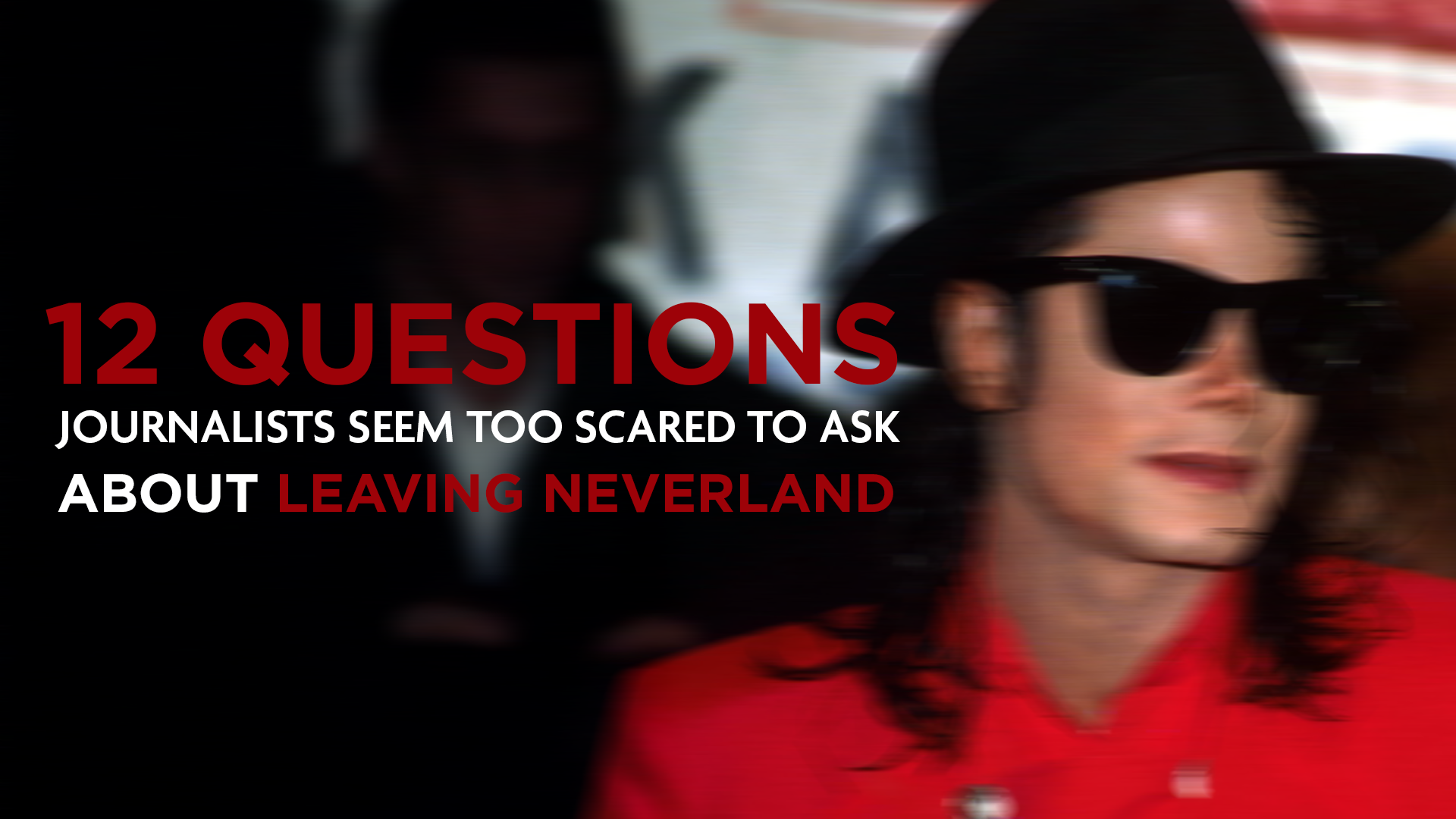
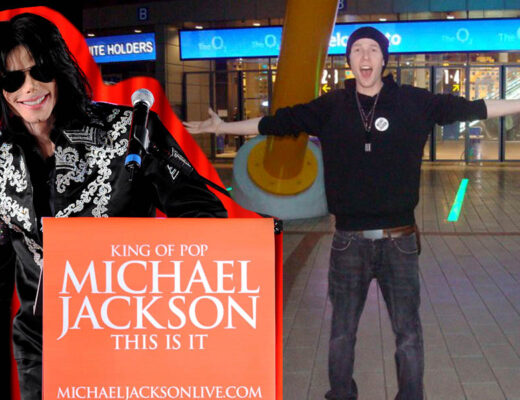
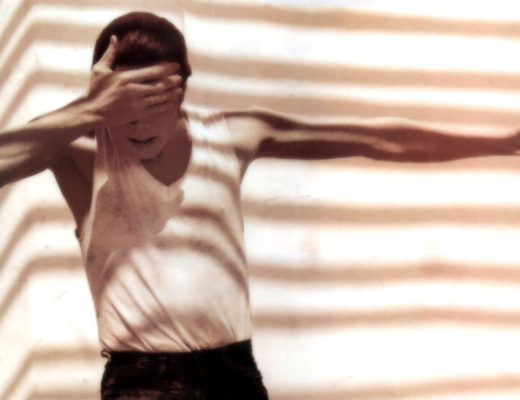
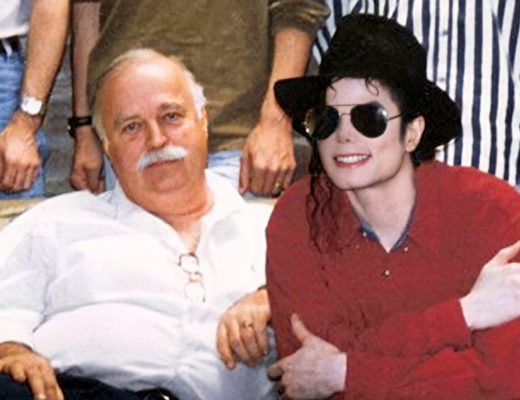
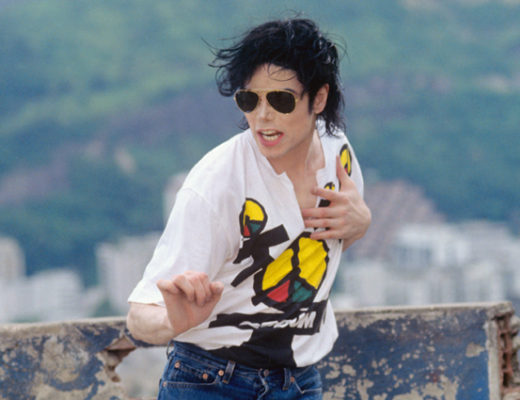
5 Comments
Helena
March 18, 2025 at 6:25 pmI have the impression that journalists are led by powerful people like Orah and Geffen. For example in my country journalists defend Michael Jackson after doing research and saying that LN is BS.
Many European journalists except in Great Britain defend MJ and consider the two parrots liars.
Tavian
March 18, 2025 at 7:08 pmAbsolutely top notch submission. Excellent Work!
Matt
March 18, 2025 at 10:51 pmWonderful work dude.
Keep it up!
X
Cindy Messina
March 19, 2025 at 12:38 amGreat article Pez. Thank you!
Magdalena
March 20, 2025 at 11:33 amThank you!!!